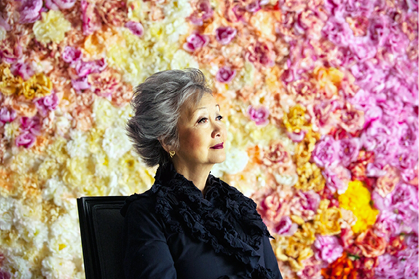Foreword
I loved 2 Pianos 4 Hands from the first time I saw it in 1996 at the Tarragon Theatre in Toronto. My feelings about the piano, about music, about satisfying my demanding parents, seemed to be refracted in the kaleidoscopic vision of Ted Dykstra and Richard Greenblatt.
I felt that they had been luckier than me: my teacher was not like theirs. Unfortunately, I was subjected to an antique vestal virgin called Miss Jamieson on Stewart Street in downtown Ottawa. Walking to the lessons after leaving class at Elgin Street Public School, I used to put one foot in front of the other, toe to heel, in order to get there as slowly as possible—so as not to hear her thumping time while the student before me was playing, and to put off as long as possible having to peer into her densely powdered, highly rouged, and wrinkled face with its three hairy moles. This vision was topped by wispy white hair, tied up in a bun inexplicably covered with a black hairnet. She seemed to have a perpetual running sore on her neck, which she attacked with a flowered handkerchief of some indefinable material. I was always somewhat worried that I would catch something from it but I kept knowledge of this from my mother, who was paranoid about germs. I had only to say that someone had sneezed near me at school for her to want to keep me at home the next day. For some perverse reason, I never mentioned the handkerchief and the running sore as an excuse to get out of my piano lessons.
I can see the old upright piano jammed against the wall and the small bay window to the right. Miss Jamieson inhabited the top half of a duplex and out of the corner of my eye, through the seasons, I could see snow-covered branches, burgeoning green leaves, and then the magic red and yellow of the maples turning colour. None of this was any solace for the forty-five minutes I spent in Miss Jamieson’s presence each week. To make matters worse, she thought that my brother was a hidden musical genius. Every second sentence began with, “Your brother…” I knew that my brother had better technique, more willpower to practise, and was probably going to be a prodigy. And at the age of eight, I knew that playing the piano was not going to be my way to any earthly spotlight. Nor did my parents delude themselves into thinking this. They simply gave me the dollar a week for my lesson because they thought that, like ballet, it would somehow render me more graceful, socially adept, and correct my posture slump.
My mother loved the piano and played by heart. She did everything with great verve and instinct with absolutely no training. She could play Chopin’s Nocturne in B Flat from memory, and if that had been the only thing she had to play, she could have filled concert halls with it. She also could knit anything just by looking at a picture and making up the pattern in her head. She was a kind of idiot savant, which I only learned to appreciate many, many years later. On days when I would come home from school and hear her playing Chopin, I knew it was going to be a better day than most. From her I learned the very basic thing about music: that it can be great solace in time of trouble.
When I saw Ted and Richard perform for the first time, all of these memories came rushing back, and when I think of their performance (I later went to two more in two different venues) I realized that playing the piano was not just about music, not just about playing “The Happy Farmer,” not just about your parents, but about what life wiggles in front of you as a promise and what it may or may not deliver.
